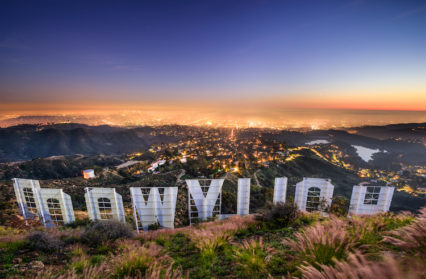Writer and Abertoir film festival co-director, Nia Edwards-Behi, reflects on the Weinstein fallout.
In the last week a major story has emerged relating to film mogul Harvey Weinstein and his persistent sexual harassment and assault of women over the course of decades. Weinstein is not some niche writer (like Devin Faraci) or some relic of the wild 1970s, when “things were different” (like Roman Polanski or Woody Allen). Weinstein is the face of modern, indie-mainstream filmmaking, a champion of liberal causes, and seemingly he’s been getting away with it for years.
The utmost respect and admiration must go to the women who are finally able to speak openly and clearly about this, as well as the surely dozens, hundreds, thousands who still feel unable to, in any number of industries and walks of life. That so many people must have spent so many years failing these women is truly heart-breaking. There will be countless people who will suddenly notice that their industry has a systematic problem (one of many) with women. Ben Affleck, for example, posted a statement in shock at these revelations, yet he’s since been forced to apologise for his own mistreatment of women after video footage resurfaced of him gleefully molesting a TV presenter. Questions must be asked of the environment that has allowed Weinstein to have continued this behaviour for so long.
And this is where we must all ask questions, from wherever we are. It makes me wonder how often I’ve been complicit in the disregard and promotion of abusers of women, from my position in the film industry as co-director of the Abertoir Horror Festival. How often have I read the words ‘difficult to work with’ about an actress when what was meant was ‘wouldn’t keep quiet about her assault’? Have I ever actively programmed, reviewed, supported and encouraged a film by someone who’s abused a woman because he’s a man in film? Have I been paying enough attention?
I work in a relatively small niche of the film industry, though it brings me to the periphery of much bigger circles of filmmakers and other professionals. I can think of one or two people I vaguely know who I would likely avoid being alone with, and plenty others I would avoid just based on the assumptions I often make about some men. Unfair? Definitely. Flawed? No doubt. But those assumptions are a small shield in what’s increasingly being exposed as a very active minefield. While I am fortunate in having a predominantly good experience in the industry, that’s not to say that there isn’t a great deal of modified behaviour involved. In some ways, this makes me complicit too. I can think of countless times where I’ve played along with the boys’ club tone of things – not in a way that directly belittles women, but in a way that sustains status quo power dynamics which are obviously so very, very damaging. I’m unlearning that. I’m changing my behaviour.
From pondering that a while, I remind myself there are so many more who need to do that more desperately. Never mind my role: what the hell are the men around me doing about it? What have they done, and what will they continue to do about it? It’s not my responsibility, as a woman, to solve this problem. Men need to stop abusing women, need to stop enabling their friends and colleagues to abuse women and need to stop ignoring stories of abuse when they become apparent. Yes, women have been complicit in Weinstein’s abuse too, and they should be held accountable – but they’re complicit within a framework of male-dominated power dynamics and that simply must change.
More recently, in light of the Weinstein exposé, there are men who have spoken out about their experiences with other powerful industry figures too. Former NFL-player and now actor Terry Crews, writer Moisés Chiullán, actor James Van Der Beek and more have all come forward with experiences of groping and assault by professionals in positions of power. And those experiences help boil it right down – this is absolutely the sort of thing that can happen to anyone who is not in a position of power versus someone who is. Consider the fact women like Asia Argento and Léa Seydoux were established in their home industries but relatively – relatively – unknown in the context of Hollywood. This is something that disproportionately happens to women because in the industry women are not afforded the same respect as men. This is precisely as true for anyone from an ethnic minority background. Imagine being both! Imagine being so seen as a commodity or a piece of meat that your peers and colleagues will cover up for persistent and repetitive criminal and immoral behaviour.
The obvious ray of hope in all this is that the breaking of the Weinstein story will force a change in the industry. But what difference will it make, really? This is too big to be swept away and forgotten about, but Weinstein is famous in his own right, as are many of his accusers. How many non-celebrity, industry-famous people will still manage to abuse their power in this way? How many white people abusing their power over men and women of colour will continue to get away with it because we haven’t thought this through in a way that’s intersectional enough? And will other industries, in entertainment, culture and beyond, follow suit? This might be a bombshell moment for Hollywood, an industry giant reduced to nothing, but I can’t help but think it’s still going to be a very long time before real change happens.












